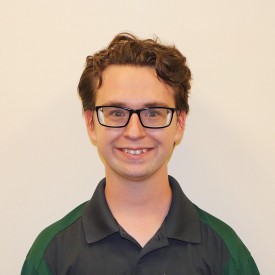Update: Monday, February 28, 2022: The last few weeks have heard rumblings that the next few weeks are going to involve some big decisions coming down the line. We will have to wait and see!
- Weekly meetings are held on Zoom, Thursdays, 2-3; check your email for an address
- You can submit questions for upcoming meetings anonymously.
- You can access meeting recordings, summaries, and documents here.
On February 17, VTC President Pat Moulton briefed us on the Workforce Development initiatives of the merger. Workforce Development and Continuing Education is a division separate from the other transformation teams (Academics, Student Experience, and Administration). CU’s Francesca Catalano and Ric Reardon also serve on the team. It has just entered the discovery phase, so it is gearing up much later in the transformation process now that other components of the merger are being put in place.
The WD/CE division is responding to a push from the Legislature and others to provide in-career development for the Vermont workforce. The project is to expand the offerings for students seeking credentialing for career advancement or access to other careers. These credentials may be for-credit or not-for-credit, very short-term or longer-term, and/or they may be intended for students who never matriculate or for employers seeking specialized training. The lack of such resources and need for this kind of career training seems to be acute at the moment. The work of discovery involves assessing stakeholders’ needs, defining cross-dependencies, and clarifying a WD/CE definition and terminology that captures VSU priorities.
A stated aim of the WD/CE initiative is to provide introductions to college study and on-ramps to matriculation for students who might not otherwise gain access to college. A lively discussion probed the prioritization of WD/CE in the transformation process, questioning the extent to which the WD/CE initiatives are eclipsing other priorities such as liberal arts education or preparation for citizenship in undergraduate education. Everyone, including President Moulton, spoke passionately about the value and necessity of undergraduate education to prepare for future challenges and career uncertainties. The centrality of DEI initiatives in the WD/CE division was affirmed. The differences in perspective tended to hinge on the extent to which the push for workforce development is infusing the transformation process as a whole in perceived or real ways. President Moulton clarified that her team has not been working with the Career Readiness arm of the merger, which is where the emphasis on work preparation would probably be felt most in the undergraduate curriculum and student experience.
On February 24, 2022,
Phil Whitman supported by Andy Alexander gave an update on the General Education sub-team and its progress. The sub-team was formed this fall, which was well after most of the other sub-teams had begun their work, and it has been moving on a different time-line than the transformation process, generally. The team includes two reps from CU and VU and one each from VTC and CCV. They have been meeting weekly and had a significant meeting over the break.
The team has agreed upon a draft idea of an academic program. It will be called Connections, and Phil shared the Mission, Vision and Learning goals (draft) for the program. The next step is to set up a program structure to review; that work is underway. Phil shared that there are plans to include some version of the integrative components that Castleton recently adopted. The Castleton work on reform has proven helpful for this group. Overall, the committee has been grappling with the usual questions that accompany Gen Ed reform, but it is amplified by having to learn the programs on each campus and to unify the overall cultures of General Education on the campuses.
Questions and discussion focused on the following areas:
Academic governance (approval): The plan is to bring it forward by April, and the team is working with the governance group to coordinate bringing it forward.
Administration and oversight: It appears that Gen Ed has not been included in the current plans for academic structure. Participants urged that it be considered. A current copy of the proposed academic structure can be found here.
Career readiness: There are no plans to build required experiential or applied learning into Gen Ed.
DEI objectives: Phil has been meeting with the committees working on DEI in the new institution; the DEI objectives are still under discussion.
Graduation requirements: The plan is to fold them into existing courses. A question about the writing requirement had some discussion, but there are no firm plans for that requirement yet.
Update: February 1, 2022: Just prior to the 1/20 meeting, two groups had just gone through their discovery gates:
Facilities Update:
Dennis Proulx and Cathy Kozlik reported on the work of the Facilities sub-team. The scope of “Facilities” work is broad, including areas such as IT and the libraries as part of “infrastructure.” The group is being led by Mike Stevens from the Chancellor’s Office. Facilities across the campuses have been studied by outside firm Gordian which is beginning to report its findings. The general finding is that many facilities have not been adequately maintained, and, going forward, bringing facilities up to a baseline standard will require a lot of resources. In general, Castleton doesn’t seem to be as challenged in areas of deferred maintenance as other campuses are. For discovery, the team has been looking at: maintenance needs, how to meet all required safety and compliance standards, organizational structures regarding facilities management, classroom utilization and technological needs, and use of facilities by the wider community.
IT Update:
Gayle Malinowski reported on the recent discovery gate for the IT team. Most of the team has been working together, in some cases, for years, so they are comfortable with the kinds of questions that they are entertaining. The questions range from how to build a centralized governance structure to how to update student-facing services, such as the IT Help Desk program, to meet the VSU goals for accessibility. The work involves reviewing many of the core systems, such as how Colleague functions or the software needs of students. They have also taken an inventory of classrooms; 60% of classrooms across the system are at a baseline outfitting for educational technology, though really only in a rudimentary state for classes needing to provide remote access. Much of the work means surveying all of the systems that have been put in place, making sure that they are all “owned” by someone who is assuring functionality and maintenance; this will require revisiting overall governance structures for IT and making sure that the system is not dependent on individuals who provide unique operational functions. Another major project is assuring that data management is efficient and that data can be leveraged in a better way toward decision-making. Coming out of the discovery gate the team is also looking at how to support the new learning modalities as the academic programs finalize their plans.
The following week included an in-depth look at two other sub-teams:
Financial Aide Update:
Matt Couture reported on the discovery work of the Financial Aid sub-team. The team has been looking at how to make processes for financial aid uniform across the campuses and how to increase the ease with which students can access information and services. Looking ahead to the design stage, the group has been using the principles from the project’s emphasis on Diversity, Equity, and Inclusion to evaluate existing services and plan new ones. The team has been looking at the readability of such things as policies on the website or at financial aid offer letters. It has also been considering how to provide access points for students outside of regular office hours. The goal is to continue to provide relationship-based in-person interactions, while also providing services for students and families who are not able to access these services during regular business hours. Ultimately, the goal will be to increase the affordability of college study for students. The team is actively seeking feedback and thinking about how to collaborate with other groups on these questions about services.
Teaching and Learning Update:
Chris Boettcher reported on the work of the Teaching and Learning Innovation sub-team. Emerging from discovery, the team is undertaking three main projects, the highest priority of which is assuring the support for quality curriculum delivery in the VSU. The team has focused much of its energies in the last months on investigating learning modalities, and has proposed a set of terms and definitions for academic programs and individual course modalities. Much of this work is anticipating a more diverse array of course learning modalities in academic programs, though what an array will look like in any individual program will be determined by many factors, starting with decisions by the program faculty. Until those decisions are made, the team has been anticipating more courses with in-person instruction and remote access. As a strategic direction, the team has decided to focus on the talent and enterprise of our faculty, enlisting them in helping to determine what quality remote access instruction will look like in the VSU. The team is glad to announce a first step in this direction in which a pilot group of faculty will be enlisted to offer such courses in the next year and participate in a working group on supporting the modality for the next generation of instructors. Participants will receive summer professional development stipends and at least one course release in the coming year. A call for proposals will be sent out very soon.
In other news:
Presidential Search Update: Tom Mauhs-Pugh reported that the search is going apace and reminded us that Sherill Blodget is a CU rep on that committee. Applications are being accepted, and the pool is pretty rich, but the policy is not to announce how many so as to not unnecessarily limit the pool of applicants. Deliberations, review, and vetting will take place starting next month, and we can expect the committee to make a confident recommendation of three candidates in no rank order by April.
The Student Advisory Council has convened. The 1/27 meeting was dedicated to discussing student use of Canvas and their feedback about their experiences with the designs used by faculty.
There is a Town Hall meeting coming up on Wednesday, February 9 at noon in Casella Theater. Check your email for details.



